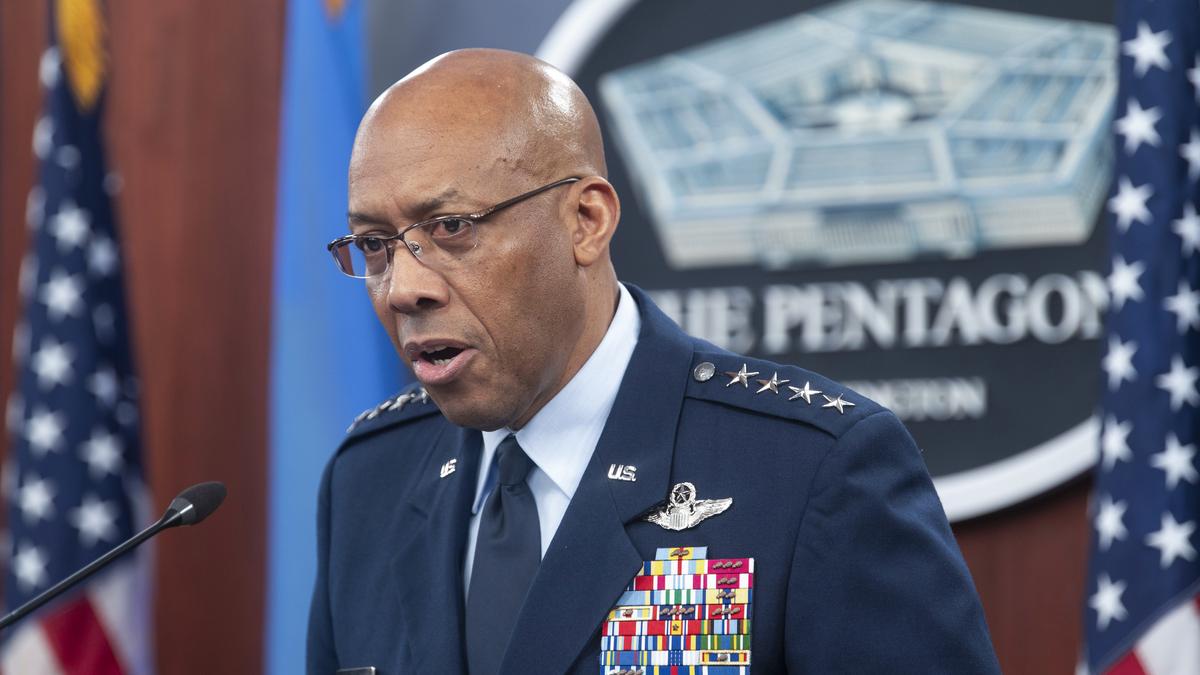
Trump fires chairman of the Joint Chiefs of Staff
The Hindu
President Trump fires Gen. CQ Brown Jr., the second Black chairman of the Joint Chiefs, amid diversity and equity concerns.
President Donald Trump abruptly fired Air Force Gen. CQ Brown Jr. as chairman of the Joint Chiefs of Staff on Friday (February 21, 2025), sidelining a history-making fighter pilot and respected officer as part of a campaign to rid the military of leaders who support diversity and equity in the ranks.
The ouster of Mr. Brown, only the second Black general to serve as chairman, is sure to send shock waves through the Pentagon. His 16 months in the job had been consumed with the war in Ukraine and the expanded conflict in the West Asia.
“I want to thank General Charles ‘CQ’ Brown for his over 40 years of service to our country, including as our current Chairman of the Joint Chiefs of Staff. He is a fine gentleman and an outstanding leader, and I wish a great future for him and his family,” Mr. Trump posted on social media.
Mr. Trump says he is nominating Air Force Lt. Gen. Dan “Razin” Caine to be the next chairman. Caine is a career F-16 pilot who served on active duty and in the National Guard, and had most recently served as the associate director for military affairs at the CIA, according to his official military biography.
Caine’s military service includes combat roles in Iraq, special operations postings and positions inside some of the Pentagon’s most classified special access programs. However, it does not include key assignments that were identified in law as prerequisites for the job, with an exemption for the president to waive them if necessary in times of national interest.
The 1986 Goldwater-Nichols Act states that to be qualified, a chairman must have served previously as either the vice chairman, as a combatant commander or a service chief — but that requirement could be waived if the “president determines such action is necessary in the national interest.”
The role of the chairman of the Joint Chiefs was established in 1949 as an adviser to the president and secretary of defense, as a way to filter all of the views of the service chiefs and more readily provide that information to the White House without the president having to reach out to each individual military branch, according to an Atlantic Council briefing written by retired Maj. Gen. Arnold Punaro. The role has no actual command authority.













